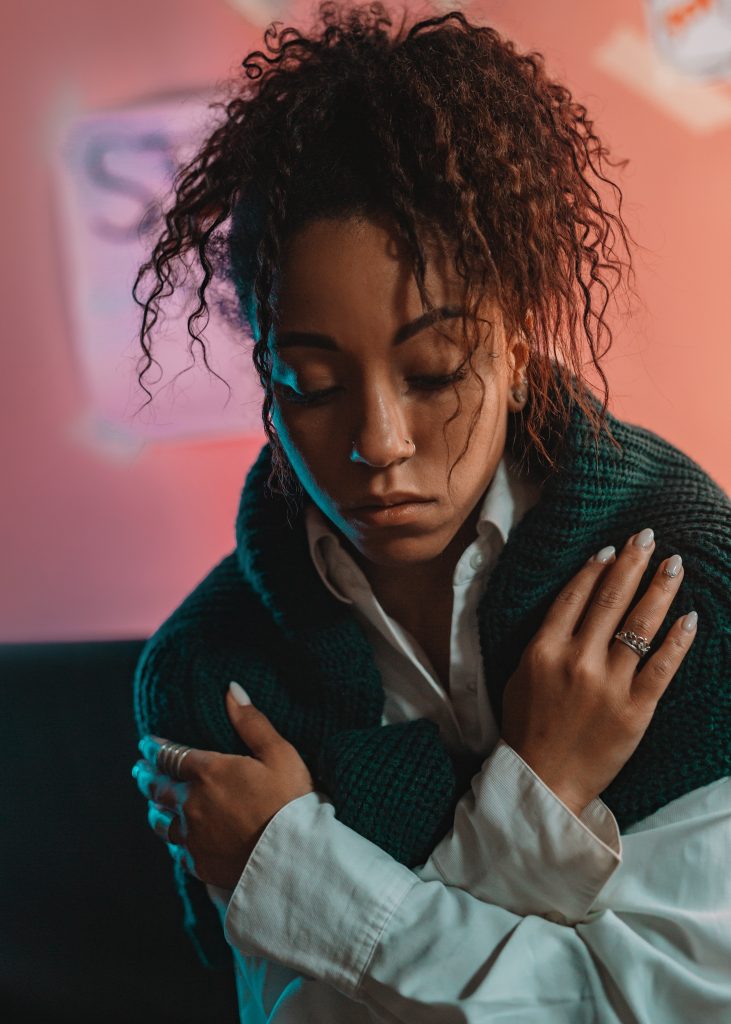LEARN SOMETHING NEW
Therapy Blog for Orem, Spanish Fork & South Jordan
Individual Counseling for PTSD
Individual Counseling: Coping with Post Traumatic Stress
If you are struggling after a stressful or scary incident in your life, individual counseling can help. It can be a challenge to know how to process these intensely stressful situations. And the aftermath can impact your life and functioning in surprising (and frustrating) ways. 
Today, you will learn more about how to know if you may need help after a traumatic event. You will also learn some small things you can do to cope, and how individual counseling can help you heal. (Related article: What Happens in Counseling?)
You Are Not Alone
First, it is important to know that if you are experiencing stress and anxiety after a major event in your life, you are not alone! In fact, the American Psychiatric Association estimates that about 3.5% of adults in the United States will experience post traumatic stress each year (Source).
Now, just because many adults experience how you are feeling does not mean it is a unique and overwhelming challenge. When it comes to managing your stress after a traumatic event, you might feel isolated and lonely. These feelings can be very frustrating, especially in settings like work, your home, or social situations. (Related article: Worry Vs. Anxiety- What is the Difference?)
What To Look For
If you have noticed that you have just become more stressed and scared after a traumatic event, you may be dealing with post traumatic stress disorder (PTSD). It is common for you to experience some stress and anxiety after something scary happens to you. But, if you find that with time things just seem to get harder, your stress may be something more. (Related Article: Coping Or Avoiding: Why Knowing The Difference Matters).
But how can you really know if you need to pursue professional help for your post traumatic stress? PTSD will express itself in unique ways in your own life. But, PTSD also has some common symptoms that you can watch for in your behavior. (Source) Let’s talk about the types of symptoms you might encounter. 
Intrusive Symptoms
These symptoms are some of the things you might think of when you picture PTSD. These can include vivid flashbacks, involuntary thoughts and memories, or nightmares. You may find that these thoughts are intense and uncontrollable. And you might be very unnerved and anxious about these symptoms, which is understandable. (Related article: Emotions 101).
Plus, these thoughts may interfere with your daily tasks. They might be distracting you from work or your relationships. Or you may lose sleep due to nightmares.
Avoidant Behavior
After the incident, you might find that you deliberately avoid things that remind you of what happened. This might mean you avoid certain people, places, or activities. And avoiding those things can make doing everyday tasks so much more difficult. (Related Article: Coping Or Avoiding: Why Knowing The Difference Matters).
Changes in Your Moods/Typical Thoughts
Maybe you just haven’t felt quite right since the incident. Maybe you realize you see things much more negatively than you did before. Or maybe it seems like you are happy a lot less than you were before. (Related article: Three Principles of Emotional Health).
Negative thoughts and feelings may be a sign you are struggling with something more. 
Feeling More (Or Less) Reactive
It may be very hard for you to get up and going since the traumatic event. Or you might be experiencing the opposite! Maybe you are so alert and engaged that you feel extra irritable or “on edge” now. You may also find that you are much more observant and feel suspicious of the things going on around you. These feelings can be exhausting and difficult to understand.
You Don’t Have to Suffer
If any combination of these symptoms soun ds familiar, know that you don’t have to suffer. You also don’t have to go it alone. PTSD and post traumatic stress issues are very treatable, and the earlier you seek help the better. (Related article: Learning How to Cope-Individual Therapy). In individual therapy, a therapist can help you identify the symptoms you’re experiencing and give you practical and applicable tools that can help you cope.
Ready to take the first step? Start counseling for anxiety in Orem, South Jordan, or Spanish Fork.
Written by Lauren Adkins
